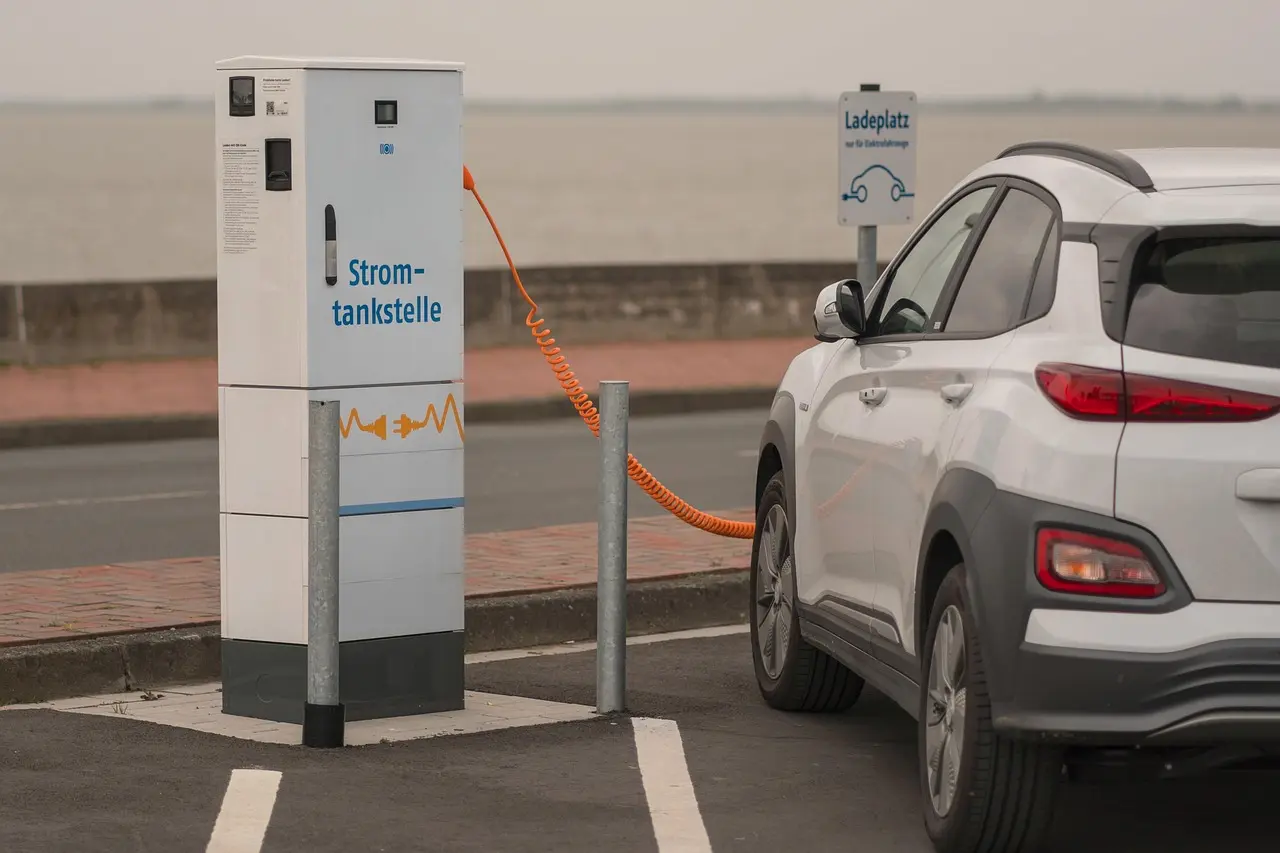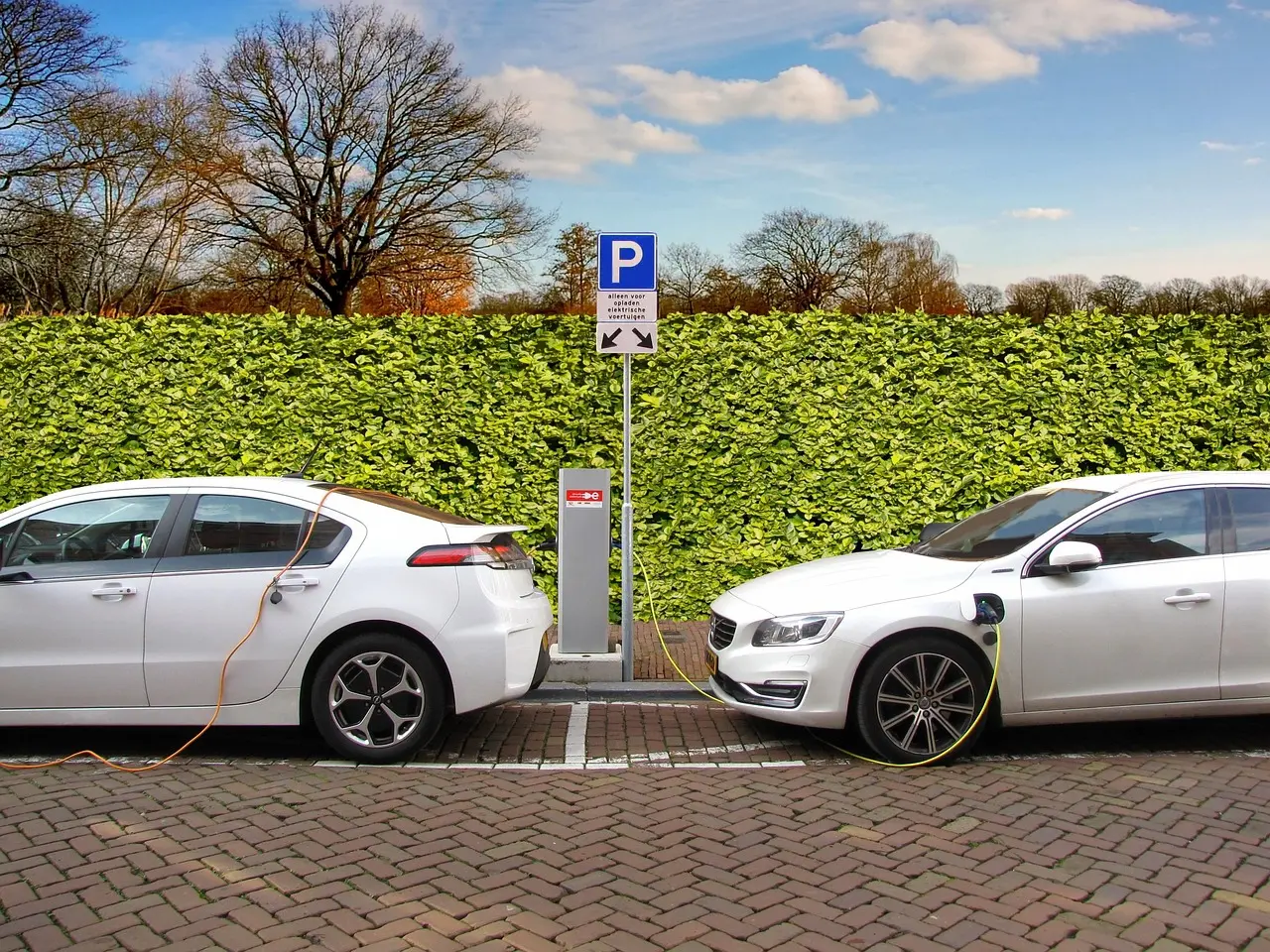The debate between Electric Cars vs Gas Cars has become one of the most important discussions in the automobile world. Electric vehicles (EVs), driven by technological advances and an increasing focus on sustainability, are at the forefront in terms of innovation. Gas cars are still popular due to their high driving ranges, fast refuelling, and well-established fueling networks. It’s important to compare the two options as we look to the future in terms of cost, maintenance and environmental impact.
In this article, we will explore the main differences between gas and electric vehicles. We cover factors like cost, efficiency and maintenance as well as environmental impact. Understanding these factors will allow people to make a more informed decision on which option is best for their lifestyle and driving requirements.

Why are electric cars better than gas cars?
The answer isn’t simple. Electric vehicles (EVs), while they do not emit tailpipe pollutants, have a significant environmental impact that goes beyond the road. The production of EVs and their batteries requires a lot of energy and raw materials, such as nickel, cobalt and lithium. The mining process can be harmful to the environment and cause ethical issues. The production of gasoline cars also has an environmental impact, but the cost is spread out over the lifecycle of the car because it doesn’t depend on large batteries. Electric cars are becoming more sustainable as EV technology improves and recycling systems become more efficient.
EVs outperform gasoline cars when comparing emissions. Gas-powered vehicles emit carbon dioxide, pollutants and other gases every time they operate. This contributes directly to air pollution and greenhouse gas accumulation. While driving, EVs emit very little to no greenhouse gases, especially when powered by renewable energy sources such as wind and solar. Even if they are charged by grids that use fossil fuels, EVs still produce fewer emissions in their lifetime than gasoline cars. This gap will widen further as renewable energy is increasingly used in global power grids.
Future innovation is another key factor. The battery technology for EVs continues to improve, resulting in greater efficiency, longer range and recyclability. Governments and automakers invest heavily in cleaner production techniques and sustainable supply chain efforts, which have no equivalent in the gasoline industry. Electric vehicles continue to improve, while gasoline cars are at their most efficient. EVs are expected to become more environmentally friendly as renewable energy adoption increases and recycling systems improve.
Why are people still choosing gas-powered vehicles?
Despite the increasing popularity of EVs, most consumers still prefer gasoline-powered cars. Electric vehicles are relatively well-known, and most people have heard of the concept. However, ownership is still low in comparison to other vehicles. Most respondents still drive petrol or diesel vehicles, and only a small number have made the switch to hybrid or electric models. The main reason for this preference is cost. Electric vehicles are perceived as more expensive by many people than conventional cars. Even when they realise the potential savings in the long run, their higher initial cost can discourage them.
Perceptions about maintenance and repair also play an important role. Many consumers think that servicing petrol cars, which are dependent on complicated battery systems and specialised facilities for repair, is more affordable and easier than servicing electric vehicles. Performance expectations and driving habits also influence preference. Drivers who travel long distances frequently or do not have easy access to charging infrastructure are concerned about range anxiety, the fear that their electric cars will run out on a long journey. In the decision-making process, these practical considerations are often more important than environmental benefits.
Aesthetics and emotional factors also play a role. According to surveys, a majority of people prefer the look and design of petrol-powered cars over electric ones. Gen Z and other younger generations often place a high value on design, styling and driving experience. Many still associate gasoline vehicles with these qualities. Gas-powered cars are still the first choice of many consumers, despite the advancements in EV technology. This is due to the availability of gasoline stations and the familiarity that people have with conventional vehicles.

Comparison of the range of electric and gas vehicles
In comparing electric cars (EVs), the two most important factors are range and fueling convenience. Gasoline cars can travel longer distances with a single tank of gas, often 400-600 miles. They are also refuelled in minutes at fuel stations that are widely available. Electric vehicles, on the other hand, have made significant improvements over time, and many models today offer ranges of 200 to 400 miles. The EV’s range is affected by many factors, including weight, speed, terrain and temperature.
Another key difference is the speed of refuelling. Even with fast-charging, EVs require much longer to charge than gas cars. The charging time is affected by the size of the battery, charger type, and other environmental factors such as cold weather. The charging infrastructure, which is rapidly expanding, is not yet as convenient or as widespread as gas stations. When planning longer trips, drivers of EVs need to carefully plan their routes to ensure they have access to charging stations.
Many EV owners have installed home charging systems to overcome these limitations. This allows them to start every day with a fully charged battery. With each new generation of EVs, battery technology advances as well. Charging times are reduced and the range is improved. Gas-powered cars currently have the edge in terms of range and convenience when refuelling, but the gap is narrowing as electric vehicles improve and the charging network expands. These improvements could make EVs as convenient for long-distance trips as gasoline cars in the future.
Electric Cars are a Better Alternative to Gas Cars
It’s crucial to weigh the pros and cons of an electric car (EV) versus a gas-powered vehicle when deciding which one is right for you. Gas cars are still favoured by some, despite EVs’ growing popularity. Here’s a comparison of the two.
Why Electric Cars Outperform Gas Cars?
Lower emissions and cleaner operation
Electric vehicles produce no tailpipe emissions, which makes them far superior for reducing greenhouse gases and improving air quality. By contrast, gasoline cars burn fossil fuels, releasing harmful pollutants for every mile they drive. When EVs are charged with renewable energy such as wind or solar power, the environmental benefits increase. This makes them a crucial solution for fighting climate change.
Quieter and Smoother Driving
Compared to gas cars, electric vehicles deliver instant torque and near-silent operation, which results in faster acceleration and a smoother ride. Electric motors are more responsive than gas-powered engines, which need to rev up before they can generate power. This makes EVs feel agile and modern.
Superior Efficiency
EVs convert stored energy more efficiently. While conventional cars only convert 12-30% energy from gasoline into motion, EVs transform over 75% grid energy into power. The energy used to drive is more efficient, so less is wasted.
Lower Operating and Maintenance Costs
Over time, EVs are generally less expensive to run. Electricity is usually cheaper than gasoline. EVs also have fewer moving components, which means they require less maintenance and don’t need to change oil as often. Regenerative braking extends component life and saves money over time.

Why do Gas Cars continue to compete?
Impact on the Environment
Although electric vehicles are cleaner to operate, their production has a large environmental impact. The extraction of minerals like lithium, nickel, cobalt and other metals is required to manufacture EV batteries. This involves energy-intensive mining methods that can cause habitat destruction, pollution of water, and emissions. Even though recycling programs and new technology are aimed at reducing these impacts, solutions for large-scale recycling are still being developed. Gas cars, on the other hand, do not need such complex battery systems. This means that their production process is less resource-intensive, even though they emit higher levels of pollutants when in use. For those who are concerned with the overall environmental impact of vehicles, this is a big advantage for traditional cars.
Higher initial cost
The affordability of gas-powered vehicles continues to be a major advantage. Internal combustion engine (ICE), or gas-powered, vehicles are typically cheaper upfront than electric cars. EVs are becoming cheaper as production increases and battery technology advances, but the price of batteries is still a major factor that keeps EVs higher than gas-powered cars. This initial price difference can be a major factor for budget-conscious consumers, especially if financing and incentives are not enough to offset it. Gas cars are seen as a more affordable option in markets where government subsidies are limited.
Charging Infrastructure and Range Limitations
The convenience of gas cars is still one of their strongest assets. Gas stations are common, and filling up usually takes only a couple of minutes. This makes long-distance driving easy and stress-free. Comparatively, EV drivers must plan their routes to make sure they can access charging stations. These are still not as widespread as gas stations. Fast chargers still require 30 minutes or longer to charge a significant amount, while standard home charging takes several hours. Even though some EVs now have ranges of more than 300 miles, drivers who regularly take long road trips or live in an area with limited charging infrastructure still worry about range anxiety. Gas cars are still popular with consumers who prefer convenience and efficiency.
Conclusion
When it comes to electric cars vs. gas cars, Electric vehicles are more energy efficient, quieter, and emit zero tailpipe pollution. They’re a great choice for drivers looking to the future.
Gas cars are still a good option for drivers who want to travel long distances without having to plan charging stops. They also have lower initial costs, a quick refuelling process, and a large fueling infrastructure. Traditional vehicles are still the best choice for drivers who want convenience and long-distance travel without having to plan charging stops.
The best option for you is one that suits your driving style, budget and lifestyle. Electric cars are gaining in popularity as technology and infrastructure continue to improve. However, for the time being, both options have benefits that make them worth considering.


